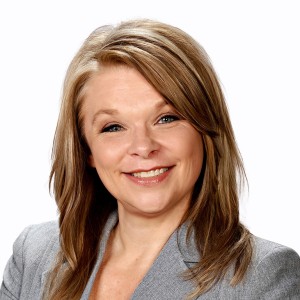First Security will be closed on Monday, February 16, in observance of Presidents' Day. Normal business hours will resume on Tuesday, February 17.
Financial Basics for Millennials
With age comes responsibility, so if you're a young adult in your 20s or 30s, chances are you've been introduced to the realities of adulthood. While you're excited by all the opportunities life has to offer, you're also aware of your emerging financial responsibility. In the financial realm, the millennial generation (young adults born between 1981 and 1997) faces a unique set of challenges, including a competitive job market and significant student loan debt that can make it difficult to obtain financial stability.
Poor money management can lead to debt, stress, and dependency on others. Fortunately, good money management skills can make it easier for you to accomplish your personal goals. Become familiar with the basics of planning now, and your future self will thank you for being responsible.
Figure out your financial goals.
Setting goals is an important part of life, particularly when it comes to your finances. Over time, your goals will probably change, which will likely require you to make some adjustments. Start by asking yourself the following questions:
- What are my short-term goals (e.g., new car, vacation)?
- What are my intermediate-term goals (e.g., buying a home)?
- What are my long-term goals (e.g., saving for your child's college education, retirement)?
- How important is it for me to achieve each goal?
- How much will I need to save for each goal?
Once you have a clear picture of your goals, you can establish a budget that will help you target them.
Build a budget.
A budget helps you stay on track with your finances. There are several steps you'll need to take to establish a budget. Start by identifying your current monthly income and expenses. This is easier than it sounds: Simply add up all of your sources of income. Do the same thing with your expenses, making sure to include discretionary expenses (e.g., entertainment, travel, hobbies) as well as fixed expenses (e.g., housing, food, utilities, transportation).
Compare the totals. Are you spending more than you earn? This means you'll need to make some adjustments to get back on track. Look at your discretionary expenses to identify where you can scale back your spending. It might take some time and self-discipline to get your budget where it needs to be, but you'll develop healthy financial habits along the way.
On the other hand, you may discover that you have extra money that you can put toward savings. Pay yourself first by adding to your retirement account or emergency fund. Building up your savings using extra income can help ensure that you accomplish your financial goals over the long term.
Establish an emergency fund.
It's an unpleasant thought, but a financial crisis could strike when you least expect it, so you'll want to be prepared. Protect yourself by setting up a cash reserve so you have funds available in the event you're confronted with an unexpected expense. Otherwise you may need to use money that you have earmarked for another purpose-such as a down payment on a home-or go into debt.
You may be familiar with advice that you should have three to six months' worth of living expenses in your cash reserve. In reality, though, the amount you should save depends on your particular circumstances. Consider factors like job security, health, income, and debts owed when deciding how much money should be in your cash reserve.
A good way to accumulate emergency funds is to earmark a percentage of your pay check each pay period. When you reach your goal, don't stop adding money-the more you have saved, the better off you'll be.
Review your cash reserve either annually or when your financial situation changes. Major milestones like a new baby or homeownership will likely require some adjustments.
Be careful with credit cards.
Credit cards can be useful in helping you monitor how much you spend, but they can also lead you to spend more than you can afford. Before accepting a credit card offer, evaluate it carefully by doing the following:
- Read the terms and conditions closely.
- Know what the interest rate is and how it is calculated.
- Understand hidden fees such as late-payment charges and over-limit fees.
- Look for rewards and/or incentive programs that will be most beneficial to you.
Contact the credit card issuer if you have questions about the language used in an offer. And if you are trying to decide between two or more credit card offers, be sure to evaluate them to determine which will work best for you.
Bear in mind that your credit card use affects your credit score. Avoid overspending by setting a balance that you're able to pay off fully each month. That way, you can safely build credit while being financially responsible. Take into account that missed payments of any sort can cause your credit score to suffer. In turn, this could make it more difficult and expensive to borrow money later.
Deal with your existing debt.
At this stage in your life, you might be dealing with student loan debt and wondering how you can pay it off. Fortunately, there are many repayment plans that make it easier to pay off student loans. Check to see whether you qualify for income-sensitive repayment options or Income-Based Repayment. Even if you're not eligible, you may be able to refinance or consolidate your loans to make the repayment schedule easier on your budget. Explore all your options to find out what works best for you.
Beware of new borrowing.
You're doing your best to pay off your existing debt, but you might find that you need to borrow more (for example, for graduate school or a car). Think carefully before you borrow. Ask yourself the following questions before you do:
- Is this purchase necessary?
- Have you comparison-shopped to make sure you're getting the best possible deal?
- How much will this loan or line of credit cost over time?
- Can you afford to add another monthly payment to your budget?
- Will the interest rate change if you miss a payment?
- Are your personal finances in good shape at this time, or should you wait to borrow until you've paid off pre-existing debt?
Weigh your pre-existing debt against your need to borrow more and determine whether this is a wise decision at this particular point in your life.
Take advantage of technology.
Access to technology at a young age is one major advantage that benefits millennials, compared with their parents and grandparents when they were starting out. These days, there's virtually an app or a program for everything, and that includes financial basics. Do your homework and find out which ones could be the most helpful to you. Do you need alerts to remind you to pay bills on time? Do you need help organizing your finances? Are you looking for a program that allows you to examine your bank, credit card, investment, and loan account activities all at once?
Researching different programs can also help with number crunching. Many financial apps offer built-in calculators that simplify tasks that may seem overwhelming, such as breaking down a monthly budget or figuring out a loan repayment plan. Experiment with what you find, and you'll most likely develop skills and insight that you can use as a starting point for future planning.
Although apps are one way to get started, consider working with a financial professional for a more personalized strategy.
Contact First Security's Wealth Management Team for further guidance.







